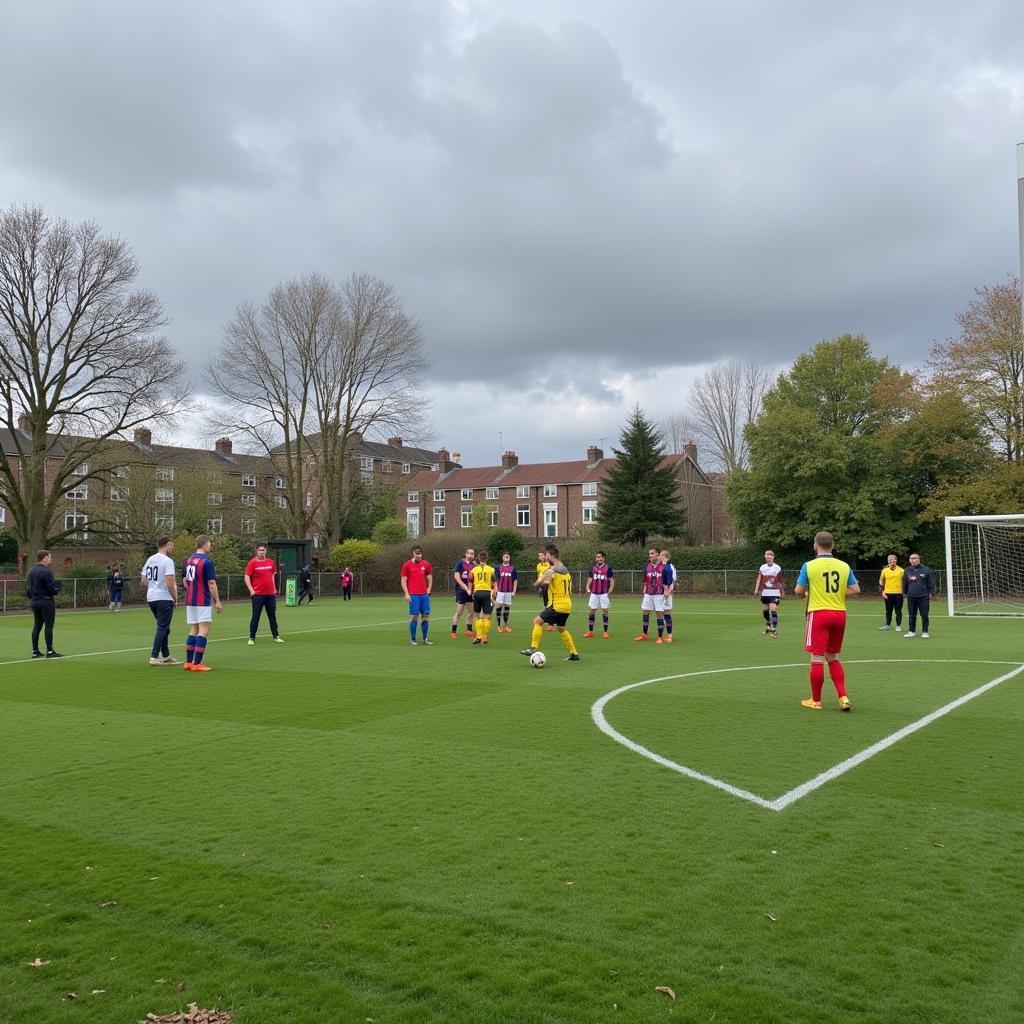Can a Goalkeeper Pick Up a Back-Pass?
November 9, 2024The question of whether a goalkeeper can handle a back-pass is a fundamental one in football. It’s a rule that has shaped the modern game and often causes confusion for new fans. Understanding this rule is crucial for both players and spectators alike.
The Back-Pass Rule: A Game Changer
The back-pass rule, officially Law 12 of the Laws of the Game, governs how goalkeepers can handle the ball when it’s intentionally passed to them by a teammate. This rule prevents time-wasting tactics and encourages more dynamic play. In short, a goalkeeper cannot handle the ball with their hands if a teammate deliberately passes it to them with their feet.
What Exactly Constitutes a Deliberate Back-Pass?
Determining what qualifies as a “deliberate” pass is key to understanding the back-pass rule. Referees use their judgment based on several factors, including the manner of the pass, the position of the player, and the overall context of the play. A pass clearly played with the inside or outside of the foot directly to the goalkeeper is often considered deliberate. However, a deflection, a mis-hit clearance, or a pass played with another part of the body (like the head or chest) is generally permissible for the goalkeeper to handle.
Consequences of an Illegal Back-Pass
If the referee deems a back-pass illegal, an indirect free kick is awarded to the opposing team from the spot where the goalkeeper handled the ball. This can create dangerous scoring opportunities, especially if the infringement occurs close to the goal. Understanding this rule is vital for defenders, who must be careful when playing the ball back to their goalkeeper.
Exceptions to the Rule
While the back-pass rule is generally straightforward, some exceptions exist. A goalkeeper can handle the ball if it’s passed back to them by a teammate using their head, chest, or any other part of the body besides their feet. Also, a deflection off an opponent doesn’t count as a back-pass, even if the ball ends up in the goalkeeper’s hands.
Why Was the Back-Pass Rule Introduced?
The back-pass rule was introduced in 1992 to combat time-wasting tactics and encourage more attacking football. Before the rule change, teams often exploited the lack of restrictions on back-passes, resulting in negative and often boring gameplay. Goalkeepers would routinely pick up the ball from teammates, effectively killing the flow of the game. The introduction of the back-pass rule revolutionized the sport, forcing goalkeepers to become more involved in the game with their feet and promoting a more dynamic and entertaining style of play.
Can a Goalkeeper Pick Up a Back-Pass FAQ
- What is a back-pass in football? A back-pass is a deliberate pass from a teammate to their own goalkeeper.
- Can a goalkeeper handle a back-pass with their hands? No, not if it’s deliberately played with the feet.
- What is the penalty for an illegal back-pass? An indirect free kick is awarded to the opposing team.
- Can a goalkeeper pick up a back-pass with their chest? Yes, this is allowed.
- Why was the back-pass rule implemented? To prevent time-wasting and encourage attacking play.
- What if the back-pass is unintentional? The goalkeeper can handle the ball.
- Does a deflection off an opponent count as a back-pass? No.
 Indirect Free Kick After Backpass
Indirect Free Kick After Backpass
Conclusion
The back-pass rule is a vital aspect of modern football. It’s essential for players and fans to understand this rule to appreciate the intricacies of the game. Remembering the key points – deliberate passes with the feet are illegal, other body parts are permissible, and an indirect free kick is the penalty – will help everyone enjoy the beautiful game even more.
Other articles on our website that you might find helpful include: “Offside Explained” and “Understanding Handballs in Football”.
Need further assistance? Contact us! Phone: 0396443476, Email: [email protected] or visit us at: 23 Tháng 3, Đắk Nia, Gia Nghĩa, Đắk Nông, Việt Nam. We have a 24/7 customer service team.